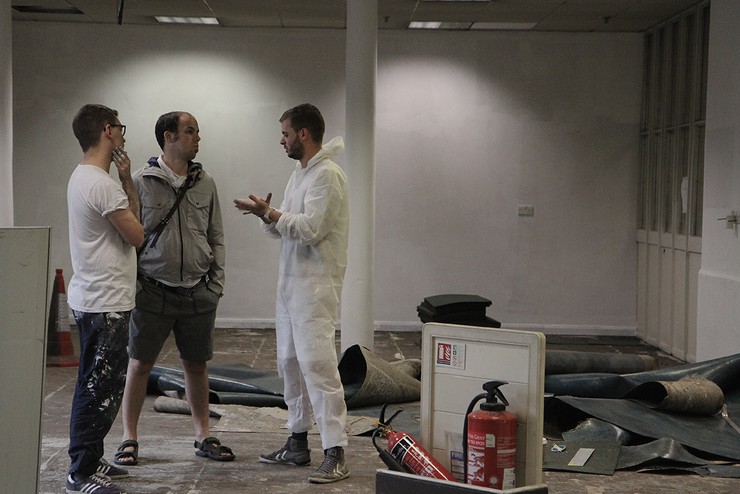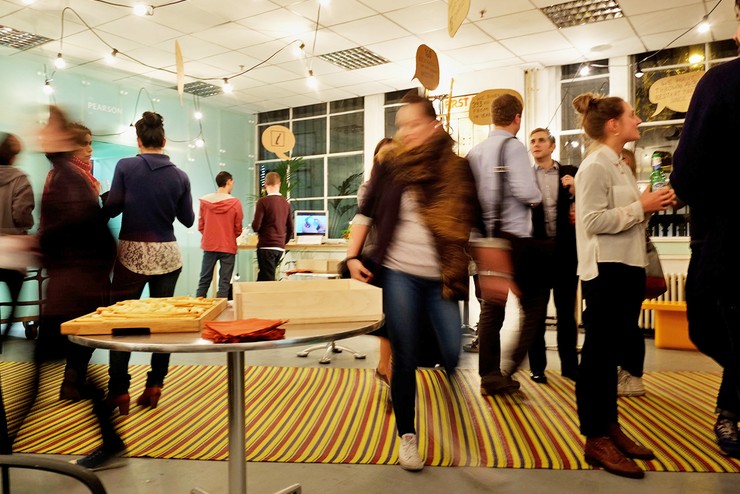
(c) makerversity.com
What is your role at Makerversity and can you tell us a bit about your background?
I am Co-Founder and Director at Makerversity. Over the last two years that has meant various things, often picking up things that just need doing in the day to day running and developing the business. I've also done a lot of the space development, all the branding, a lot of talking and just generally trying to keep finding good members and then keeping them happy.
I am a designer and artist by background, and I'm most interested and driven by making things and making things happen. My work has largely focused around product, interaction and service design - working for myself, leading studios and inside large organisations. Projects have taken a variety of forms from new businesses, services and products in the real world, to more speculative research focused work. And I'm a proud South Londoner!
Where did the idea for Makerversity come from?
Makerversity was a culmination of a number of experiments and ideas that myself and one of the other co-founders, Tom, had been working on in the two years before starting Makerversity. Between us, we had been doing a lot of experiments around the social implications of digital manufacturing and making technologies; for example, we had designed and ran a series of events looking specifically at various accessibility issues and had opened a CNC [computer numerical control] workshop in an old cafe.
We were also running a bunch of experiments with young people and teaching them how to design and make things, and how these skills can lead to weird and wonderful work opportunities. This varied from working in schools and colleges to running an employability scheme one summer - we gave 6 young people £100 each and 8 weeks of our - and our networks' time.
We were approached by Somerset House about the space they had that was disused and unloved at the time. They shared many of our ambitions and social goals, and we got started.

(c) makerversity.com
How important do you think affordable space is to recent start-ups, as opposed to just working from home?
One of the most interested and surprising things for me about Makerversity has been how quickly people worked with one another. I think this coming together of such diverse disciplines, ideas and skills is invaluable to new businesses as it opens up opportunity.
We have also become a bit of a focal point for the industry and we get a lot of requests around projects and skills. It's great that we are able to take these on and work with our members to deliver them, or simply point people to our members who have the skills they require.
We are very lucky that we are partnered with Somerset House - as it is such a revered and historic institution it has expediated us being so visible.
I think the community element, the flag in the ground and the affordability of the space and access to tools are all crucial to the young companies we have within our membership.

(c) makerversity.com
How many members do you have now?
We have around 140 fixed members and around another 10 or so more flexible members. They range from architects, technologists, alchemists, product designers, engineers, software developers, animators, fashion designers... you name a making related discipline, we probably have someone working in that field.
What are your plans for the future?
We have a range of plans. We want to continue to improve our membership offer at Somerset House and are also looking to expand to a new location.
Additionally, we have just launched our first set of products/ lessons called MV DIY - they are designed to engage kids in building their own environments and tools.